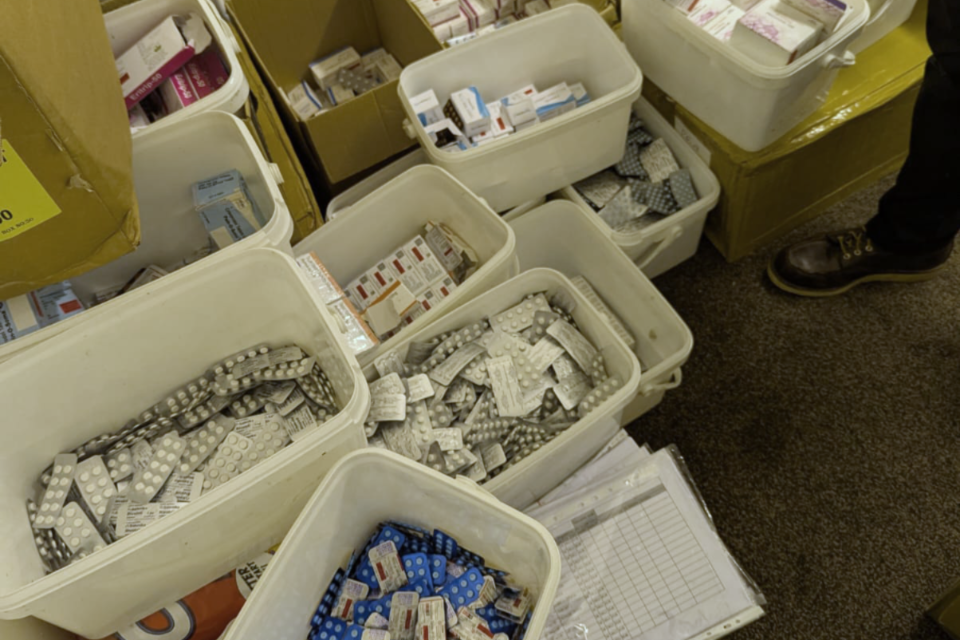Twelve Suspects Arrested in Largest Organised Medicines Trafficking Probe in UK History
At dawn on April 29, an unprecedented wave of law enforcement surged across the West Midlands and Northwest of England, echoing through the quiet streets of Greater Manchester, Staffordshire, and Merseyside. Twelve individuals were arrested in what is being hailed as the largest criminal investigation into organised medicines trafficking by the Medicines and Healthcare products Regulatory Agency (MHRA). The daylight raids targeted properties that were allegedly pivotal in a vast network profiting from unlicensed and controlled drugs.
The Operation Codename: Subaru
Dubbed “Operation Subaru,” this intricate investigation mobilised over 150 officers from the MHRA’s Criminal Enforcement Unit and local police departments. This concerted effort marked a significant escalation in the fight against illegal medicine trafficking, underscoring the seriousness of the issue that has plagued public health for years. As Andy Morling, head of the MHRA’s Criminal Enforcement Unit, stated, “Today’s search and arrest operation follows a long, complex and thorough investigation… There is nowhere to hide.”
In the course of the operation, authorities executed searches at 22 locations, seizing hundreds of thousands of doses of medicines, including opioid painkillers and anti-anxiety medications. Additionally, around £100,000 in cash, luxury watches, and suspected criminal assets stored in cryptocurrencies were confiscated. A staggering £3.5 million in assets linked to the criminal underworld has also been restrained through judicial orders. Such actions reveal a virulent trade that undermines public safety and poses severe health risks.
The Public Health Crisis
The ramifications of such illegal activities extend beyond the immediate arrests; they threaten the very fabric of public health. Reports estimate that over 20,000 people in the UK suffer adverse effects from counterfeit medications every year, a statistic that reinforces the urgency of the MHRA’s ongoing crackdown. According to Dr. Emilia Harrington, a public health expert at the University of Birmingham, “The dangers posed by counterfeit medications cannot be overstated. They often contain harmful substances and can lead to serious health complications.”
- Counterfeit medicines can contain:
- Completely different active ingredients
- Contaminants or toxic substances
- No active ingredients at all
- Incorrect dosages leading to harmful side effects
In a 2022 study published in the Journal of Pharmaceutical Sciences, researchers found that over 30% of online medicines purchased from unverified sources were counterfeit. These startling figures illuminate the public’s vulnerability in the unregulated digital marketplace, where price often trumps safety in the purchasing decision.
The Financial Underbelly
In addition to the health risks, the financial implications of medicine trafficking are equally dire. Traffickers often launder their earnings through complex networks involving cryptocurrency, further complicating law enforcement efforts. Morling highlighted this issue, asserting that “trafficking in medicines destroys lives and places a huge financial burden on wider society.”
The resource implications are staggering. The MHRA reported that in 2024 alone, over 17.5 million doses of trafficked medicines were intercepted, representing a street value exceeding £40 million. This staggering figure showcases the vast size of the illicit market and the urgency of dismantling such organised crime networks.
Guiding the Public: Safe Medicine Practices
As the investigations unfold, the MHRA is urging the public to exercise extreme caution when purchasing medicines online. “Prescription medicines should only be obtained from a registered pharmacy against a prescription issued by a healthcare professional,” Morling warned. The agency has taken steps to educate the public through its #FakeMeds initiative, which provides crucial information regarding the safe procurement of medications.
“The digital age has transformed the way we access healthcare. However, we must remain vigilant and inform our communities about the dangers of unregulated purchasing channels,” stated Dr. Linda O’Connor, a regulatory expert at the University of Leeds. She emphasized the importance of education in combating misinformation and protecting public health.
Efforts to regulate online pharmacies have been inadequate thus far, as many evade detection using sophisticated cyber techniques. However, through the collaborative efforts of law enforcement agencies, the MHRA is holding criminals accountable and taking a firm stand against this pervasive issue.
As the sun set on the West Midlands and Northwest England after the raids, the organisations involved in Operation Subaru hope to send a clear message: the fight against medicines trafficking is far from over. Today’s operation, with its historical significance, echoes a commitment to public safety and health. Despite the challenges that lie ahead, the collaboration between law enforcement agencies underscores a united front against those who threaten the wellbeing of society.
Source: www.gov.uk


